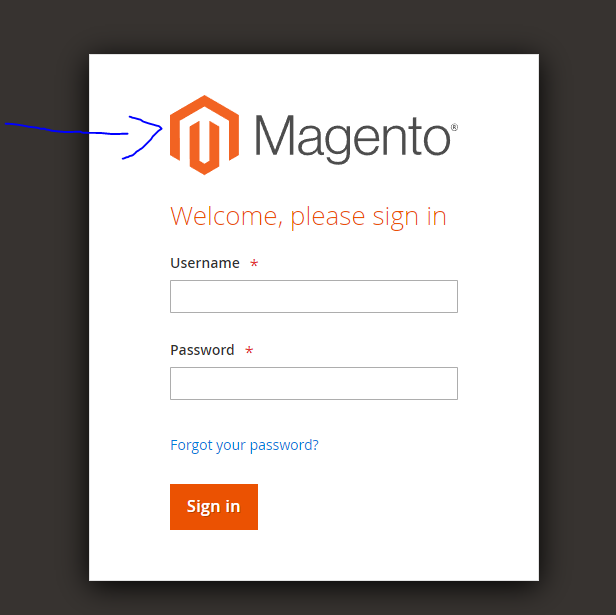Adobe Commerce: When should you use this platform?
You already know the features and benefits of Adobe Commerce, but you're not sure why? You should use this platform and when? It's a good choice for...
By Role
By Industry
By Target Customer
What We Offer
We drive business growth by improving operational efficiency through process optimization, smart automation, and cost control. Our approach boosts productivity, reduces expenses, and increases profitability with scalable, sustainable solutions
Customer Experience
We design memorable, customer-centered experiences that drive loyalty, enhance support, and optimize every stage of the journey. From maturity frameworks and experience maps to loyalty programs, service design, and feedback analysis, we help brands deeply connect with users and grow sustainably.
Marketing & Sales
We drive marketing and sales strategies that combine technology, creativity, and analytics to accelerate growth. From value proposition design and AI-driven automation to inbound, ABM, and sales enablement strategies, we help businesses attract, convert, and retain customers effectively and profitably.
Pricing & Revenue
We optimize pricing and revenue through data-driven strategies and integrated planning. From profitability modeling and margin analysis to demand management and sales forecasting, we help maximize financial performance and business competitiveness.
Digital Transformation
We accelerate digital transformation by aligning strategy, processes and technology. From operating model definition and intelligent automation to CRM implementation, artificial intelligence and digital channels, we help organizations adapt, scale and lead in changing and competitive environments.
Operational Efficiency
We enhance operational efficiency through process optimization, intelligent automation, and cost control. From cost reduction strategies and process redesign to RPA and value analysis, we help businesses boost productivity, agility, and sustainable profitability.
Customer Experience
Marketing & Sales
Pricing & Revenue
Digital Transformation
Operational Efficiency
8 min read
Por Sofía Madriz | Jun 02, 2025
8 min read
Por Sofía Madriz | Jun 02, 2025
Personalization in Customer Relationship Management (CRM) is a key strategy in the digital era in which we find ourselves to improve the relationship between a company and its customers. However, the misuse of data can cross the line of customer privacy. We will see what to take into account so that this does not happen.
In this article we will talk about:

Personalization in CRM is critical because it enables companies to deliver meaningful and relevant experiences. When customers feel understood and cared for in a personalized way, they are more likely to become loyal and make repeat purchases. Personalization is not just about adding a customer's name to an email; it involves understanding their needs, preferences and behaviors to provide targeted solutions that meet their expectations.
Personalization at this stage not only improves customer relationships, but also increases operational efficiency. By tailoring offers and communications to each customer's preferences, companies can maximize their resources and optimize their marketing, sales and even customer service strategies.
A CRM offers numerous aspects that can be customized to enhance the customer experience:


A Despite the benefits of personalization, there is a real risk of crossing the line of customer privacy. Excessive personalization can lead to the following problems:

To avoid crossing the line of customer privacy, it is essential to understand the aspects that may affect it:

While personalization is important, companies must ask themselves what information is truly vital for their purposes. In many cases, a high degree of personalization can be achieved without the need for extremely sensitive data. Instead of collecting as much information as possible, companies should focus on data relevant to their products or services. This not only protects customer privacy, but also simplifies data management and ensures that relevant and useful information is used.
For example, an e-commerce company may require basic information such as name, shipping address and email address to process an order. However, it is not necessary for the company to know personal details such as the customer's political orientation or religion in order to provide efficient service.

o avoid crossing the customer privacy line at the consideration stage, here are some essential keys:
CRM personalization is a powerful tool for any company, but it must be used responsibly and ethically. Understanding the importance of personalization, the aspects that can be personalized in a CRM and the risks of excessive personalization is fundamental. In addition, understanding the aspects that can impact customer privacy and what information is vital for the company's purposes is essential to making informed decisions and executing different strategies. By following the keys to not crossing the line of customer privacy, companies can create personalized experiences that foster customer loyalty without compromising customer privacy and trust. Ultimately, personalization in CRM must be a delicate balance between meeting customer needs and respecting their right to privacy. By doing it the right way, companies can reap the benefits of personalization while building strong, long-lasting relationships with their customers.

You already know the features and benefits of Adobe Commerce, but you're not sure why? You should use this platform and when? It's a good choice for...

Every Magento instance consits of at least two seperate sites: the frontend, which allows customers to navigate, create accounts and purchase goods,...
.jpg)
Oracle Customer Experience (CX): A Comprehensive Solution for Modern Businesses